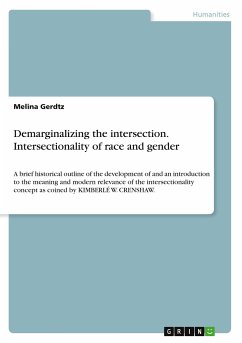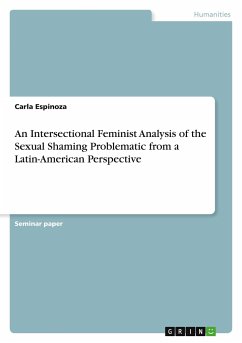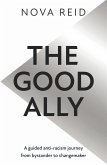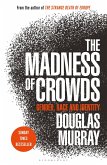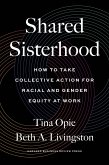Document from the year 2019 in the subject Gender Studies, grade: 1,0, University of Münster (Erziehungswissenschaft), course: Researching Racism - Classical Approaches and Recent Impulses, language: English, abstract: In a time with racism, far-right-parties and the ever so often correlating discriminating mindsets on the rise, fighting for everyone's human rights and equality is again as important as it should ever be. Understanding the concept of intersectionality in this relation is an indispensable necessity for comprehending and ultimately dismantling reigning institutions of oppression such as sexism, racism or heteronormativity and so forth. The precise term "intersectionality" itself was developed and coined by United States (US) civil rights activist, critical race theory scholar and professor of law KIMBERLÉ WILLIAMS CRENSHAW in her influential essay "Demarginalizing the Intersection of Race and Sex: A Black Feminist Critique of Antidiscrimination Doctrine, Feminist Theory and Antiracist Politics." published in the year of 1989. She used the notion to describe the ways in which social identities overlap, and how that factors into distinct experiences of oppression of individuals since repressive institutions (e.g. racism, sexism, transphobia, xenophobia, classism, etc.) are interconnected as well and hence cannot be examined separately from one another. CRENSHAW specifically introduced the term to describe the peculiar situation of African American women and how they usually uniquely suffer from both sexism and racism in multifaceted and intercorrelated ways. In the footnotes in her following work "Mapping the margins: Intersectionality, identity politics, and violence against women of color. "(1991) CRENSHAW states that her analysis of how the concepts of race and gender connect was an attempt to "suggest a methodology that will ultimately disrupt the tendencies to see [them] as exclusive or separable" (CRENSHAW 1991, p. 1244).

